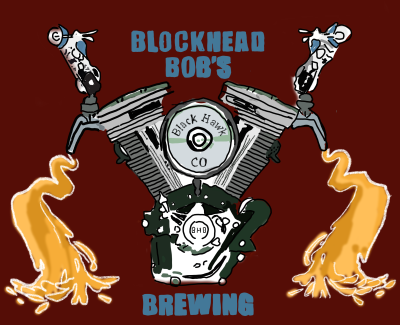Homebrew Recipe
Keutebier
- Method:
- All Grain
- Style:
- Specialty: Historical Beer
- Boil Time:
- 45 min.
- Batch Size:
- 5 gal.
- Boil Size:
- 6.5 gal.
- Efficiency:
- 65
- Rating:
- Source:
- Brew Your Own
- Source Notes:
- November 2019, Vol. 25, No. 7 page 73. Part of "Extinct German Styles" brew special. This beer probably originated in Holland in the 14th century. At the beginning, it was most likely a sweet, unhopped gruit beer made from a mash of barley malt, oatmeal, and a little wheat flour. The relative proportions are unclear. Keutebier-making eventually spread throughout the entire northwestern European lowlands, which is why there are many different spellings for this brew, including koet, coyt, keut, koit, keuta (Latin), and quente (French). Although keutebier is hardly ever produced nowadays, it is of immense historical importance, as it is the effective forerunner of many modern ales in Germany, Holland, Belgium, and France, including altbier, Kolsch, witbier, biere de garde, and biere de saison. Sources from the 17th century indicate that keutebier was eventually brewed with some wheat malt instead of oatmeal, and with hops. A keute mash was allowed to rest for a full day, which probably activated phytase enzymes and lactic acid bacteria to give the beer a slightly sour taste. It also enhanced its keeping quality. In a modern reconstruction, this aspect would probably call for some acidulated malt in the grain bill. A few hours of kettle-souring might also do the trick. The color of this keutebier resembles that of rose wine. There is a slight cherry and herb candy aroma in the nose. On the palate, the low hop content is only faint, which is fitting for a late-medieval interpretation of this style. This makes the beer taste slightly syrupy, with notes of honey and straw. It is also very low in effervescence. Interestingly, even though this brew was judged the least beer-like of the five recreations covered in this article, it was also deemed surprisingly refreshing, especially if served chilled.
- Notes:
- Two alternatives. Medieval mash method (before the invention of the thermometer): Mash in at any tap water temperature, at an approximate liquor-to-grist ratio of 3.5:1 (1.7 qts./lb.). Slowly bring the entire mash to a boil, while stirring almost constantly. Lauter until the liquor surface is level with the top of the mash. Replenish the lautered liquor and boil the mash again. Lauter until the kettle original gravity (OG) is 1.042. Bring wort to a boil. Boil the wort for 45 minutes, whirlpool for 15 minutes, cool, and ferment at the yeast's mid-range temperature. Bottle or keg as normal. Modern mash method (used in Bamberg): Mash-in at 95F; rest 5 minutes; raise temperature to 113F; rest 20 minutes; raise temperature to 126F; rest 20 minutes; raise temperature to 154F; rest 20 minutes; raise temperature to 162F; rest 20 minutes; raise temperature for mash-out at 172F. Boil the wort for 45 minutes, whirlpool for 15 minutes, cool, and ferment at the yeast's mid-range temperature. Bottle or keg as normal.
Brew Numbers
| OG | FG | ABV | SRM | IBU |
|---|---|---|---|---|
| 1.046 | 1.014 | 4.7 | 3.4 | 5 |
Fermentables
| Name | Amount | % Grain Bill |
|---|---|---|
| Lager or Pilsner Malt | 6 lbs. | 64.00 |
| Notes: Weyermann Bohemian Floor-Malted Pilsner | ||
| Wheat Malt | 1.75 lbs. | 18.67 |
| Notes: Weyermann Bohemian Floor-Malted Wheat Malt | ||
| Smoked Malt | 0.875 lbs. | 9.33 |
| Notes: 14 oz. Weyermann Beech-Smoked Barley Malt | ||
| Acidulated Malt | 0.375 lbs. | 4.00 |
| Notes: 6 oz. | ||
| Oatmeal | 0.375 lbs. | 4.00 |
| Notes: 6 oz. instant oatmeal or malted oats | ||
| Total: | 9.38 lbs. | |
Hops
| Name | Amount | Boil Time | Use | AA |
|---|---|---|---|---|
| Perle (GER) | 0.3 oz. | 0 | Mash | 8.2 |
| Notes: 2.5 AAU Hallertauer Perle hops (in the mash) | ||||
| Name | Amount |
|---|---|
| Perle (GER) | 0.3 oz. |
Yeast
| Name | Lab | Product |
|---|---|---|
| Dusseldorf Alt Ale | White Labs | WLP036 |
| Notes: Or any German ale yeast. | ||
| German Ale | Wyeast | 1007 |
| Notes: Or any German ale yeast. | ||
Mash Steps
| Step | Name | Temp | Time | Type |
|---|---|---|---|---|
| 1 | Step Mash | 95 | 5 | All Grain |
| Notes: Mash-in at 95F; rest 5 minutes. | ||||
| 2 | Step Mash | 113 | 20 | All Grain |
| Notes: Raise temperature to 113F; rest 20 minutes. | ||||
| 3 | Step Mash | 126 | 20 | All Grain |
| Notes: Raise temperature to 126F; rest 20 minutes. | ||||
| 4 | Step Mash | 154 | 20 | All Grain |
| Notes: Raise temperature to 154F; rest 20 minutes. | ||||
| 5 | Step Mash | 162 | 20 | All Grain |
| Notes: Raise temperature to 162F; rest 20 minutes. | ||||
| 6 | Mash Out | 172 | 10 | All Grain |
